On May 9, the National Assembly discussed in the hall a number of contents with different opinions of the draft Law on Special Consumption Tax (amended). The draft Law on Special Consumption Tax (amended) is one of 34 draft laws that will be considered and approved by the National Assembly at this session. One of the contents that has received the attention of many National Assembly deputies is the imposition of special consumption tax on soft drinks according to Vietnamese Standards with sugar content above 5g/100ml.
Proposal to apply 8% tax rate from 2027
Regarding the addition of sugary soft drinks to the list of special consumption tax, the Chairman of the Economic and Financial Committee stated: The proposal to impose tax on sugary soft drinks is the first step in the process of implementing solutions to limit the production and consumption of products containing a lot of sugar in food and beverages, contributing to the orientation of production and consumption. This is one of the main causes of overweight, obesity and non-communicable diseases related to diet. Therefore, the Standing Committee of the National Assembly requests the National Assembly to keep the draft Law, and at the same time, proposes that the Government continue to study international experience to consider the possibility of adding other products containing sugar to the list of special consumption tax.
In addition, since this item has just been added to the taxable objects, there needs to be an implementation roadmap so that businesses have time to adapt, adjust their production and business plans, and gradually switch to products with low sugar content. Therefore, the National Assembly Standing Committee agrees with the proposal of the drafting agency to amend the draft Law in the direction of stipulating the implementation roadmap: From 2027, apply a tax rate of 8%, from 2028, apply a tax rate of 10%.
According to the opinions of the National Assembly deputies, in the context of the economy being under much pressure from the outside and many uncertainties in the consumption and service sectors, the application of special consumption tax on sugary soft drinks needs to be carefully considered to ensure comprehensiveness.
Delegate Nguyen Thi Thu Dung - National Assembly Delegation of Thai Binh province said that adding sugary soft drinks to the list of subjects subject to special consumption tax is to protect public health, reduce the risk of overweight, obesity and non-communicable diseases related to diet. However, in the world and in Vietnam, there are also studies on this field but there is no solid scientific basis to confirm that sugary soft drinks are the main and only cause of overweight and obesity.
According to the National Institute of Nutrition, overweight and obesity are the result of many causes such as sedentary habits, unhealthy diets, genetic factors or diseases. Furthermore, a 2023 study by the Institute for Economic and Policy Research showed that students in urban areas have a higher obesity rate but consume less soft drinks regularly than students in rural areas. On the other hand, sugar absorption also depends on each person's constitution. This shows that there is not enough scientific basis to attribute sugary soft drinks as the main cause of overweight and obesity.
In addition, applying excise tax only to packaged soft drinks with sugar content above 5g/100ml may be misleading and lead to undesirable substitution behavior. Consumers may switch to other foods and beverages with equivalent or higher sugar content but not subject to the tax. For example, milk tea, street fruit juice, ready-to-drink coffee. These countries are inherently difficult to control both quality and sugar content.
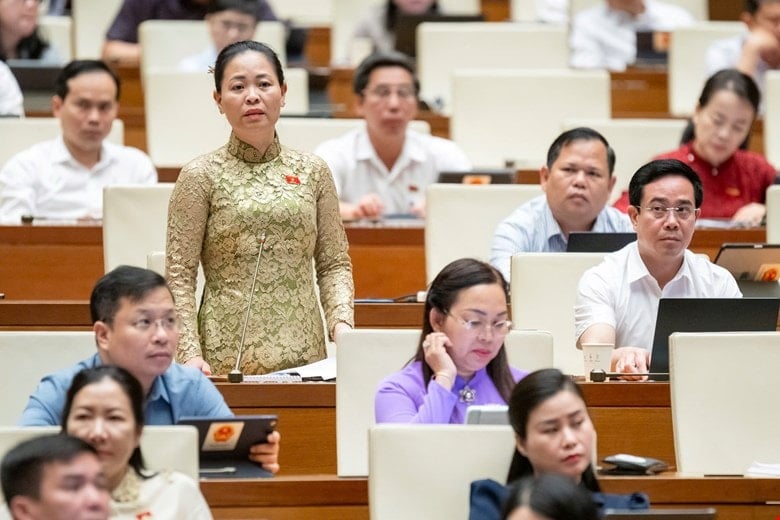
According to Delegate Nguyen Thi Thu Dung, in the current context, the socio-economic situation of our country still has many potential challenges, purchasing power has decreased, businesses are facing difficulties in production and business, the labor market has not fully recovered and post-COVID-19 support policies are in the transition process, so applying a new tax or adjusting the tax rate too soon can increase the cost burden for businesses and consumers, thereby negatively affecting growth, aggregate demand and macroeconomic stability. Therefore, Delegate Nguyen Thi Thu Dung proposed to postpone the application of the special consumption tax on soft drinks with a sugar content of 5g/100ml from 2028 to create conditions for businesses to research, adjust products, invest, innovate technology and develop alternative products.
Instead of applying the tax rate as stipulated in the current draft law, we should apply a gradual increase roadmap in stages, for example, instead of 8%, it could be from 3% - 7% and then up to 10% to help businesses have time to adapt, and at the same time, we can consider applying different tax rates depending on the sugar content in the product to encourage businesses to innovate formulas towards reducing sugar, aiming for healthy consumption.
Agreeing with the above viewpoint, delegate Mai Van Hai - National Assembly Delegation of Thanh Hoa province said that the regulation on the subject of special consumption tax on soft drinks with sugar content of 5h/100ml will greatly affect the domestic soft drink production industry, especially small and medium-sized enterprises that will bear the burden, increase costs, and make it difficult to compete with imported products. Increased product prices will reduce consumption, affecting revenue and employment of workers. Moreover, it will also affect farmers because the soft drink industry uses many domestic materials such as sugar cane, fruit, coffee, etc.
According to delegate Mai Van Hai, the main causes of obesity, diabetes and non-communicable diseases are due to many different factors such as the use of confectionery, sweetened milk and many other sweets, not just the use of sugary soft drinks. Therefore, delegate Mai Van Hai suggested that the drafting agency and the reviewing agency need to consider and evaluate more carefully the impacts of tax imposition in order to have appropriate implementation measures or roadmap. At present, delegate Mai Van Hai suggested that no tax on soft drinks should be considered.
There needs to be a roadmap to prepare when imposing taxes on new products.
Assessing the impact of the special consumption tax on sugary soft drinks that may affect agricultural production and other natural products, delegate Tran Van Khai said that the concept of sugary soft drinks according to Vietnamese standards has not been specifically defined, leading to concerns that natural products such as coconut water and fruit juice may be equated with carbonated soft drinks. In fact, about 200,000 coconut farmers and hundreds of processing enterprises are very worried that their processed coconut water products may be considered soft drinks subject to special consumption tax. Applying a rate of 10% to carbonated soft drinks is inappropriate and will negatively affect agricultural production.
With the above shortcomings, delegate Tran Van Khai proposed to postpone the tax imposition for 1 year, applying 8% in the first year and 10% in the following years. This solution will help businesses adjust production, people gradually change their habits, the State achieve the goal of protecting health and harmonizing the interests of all parties.
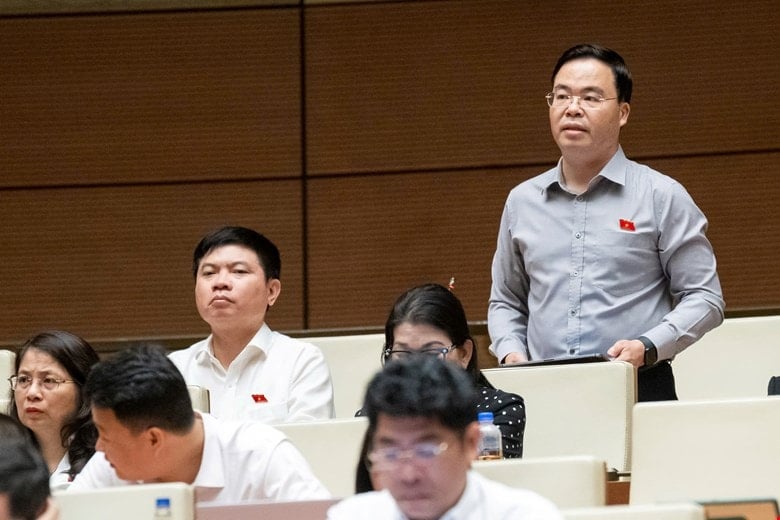
From another research perspective, delegate Cam Thi Man - National Assembly Delegation of Thanh Hoa province agreed with the regulation of the tax roadmap for new products. In particular, sugary soft drinks are products that are related to 25 related industries in the value chain, such as retail, tourism, restaurants, hotels and hundreds of thousands of sugarcane farming households, sugar production companies.
However, imposing taxes on new products requires a long-term preparation roadmap, especially in the context of businesses facing many difficulties and tax and fee burdens. Especially when the United States is moving to apply a reciprocal tax of up to 46% on goods imported from Vietnam. In addition, the Institute for Policy and Strategy Research also recommends applying a tax rate of 5% on the group of products subject to special consumption tax for the first time to minimize negative impacts on the economy.
Delegate Cam Thi Man said that the 5% tax rate option will ensure the implementation of the goals as proposed in the draft Law on Special Consumption Tax (amended), including: Regulating consumption, regulating production, ensuring people's health, ensuring budget revenue. At the same time, it will create opportunities for businesses to adapt to the new tax, restructure their business, maintain production activities as well as ensure employment opportunities and income for workers. Therefore, delegate Cam Thi Man proposed to study and supplement the roadmap for applying tax rates on soft drinks specifically as follows:
Option 1, tax schedule after the law takes effect 1 year, from January 1, 2027 to December 31, 2027 tax rate 5%, from January 1, 2028 to December 31, 2028 tax rate 8%, from January 1, 2029 tax rate 10%. Option 2, tax schedule after the law takes effect 2 years, from January 1, 2028 to December 31, 2028 tax rate 8%, from January 1, 2029 tax rate 10%.
According to delegate Cam Thi Man, such a roadmap and tax rate will ensure the implementation process without having too much impact on consumers, businesses and the economy. At the same time, businesses have time to change their product strategy, shifting to products that are good for consumers' health while still ensuring business goals and economic growth.
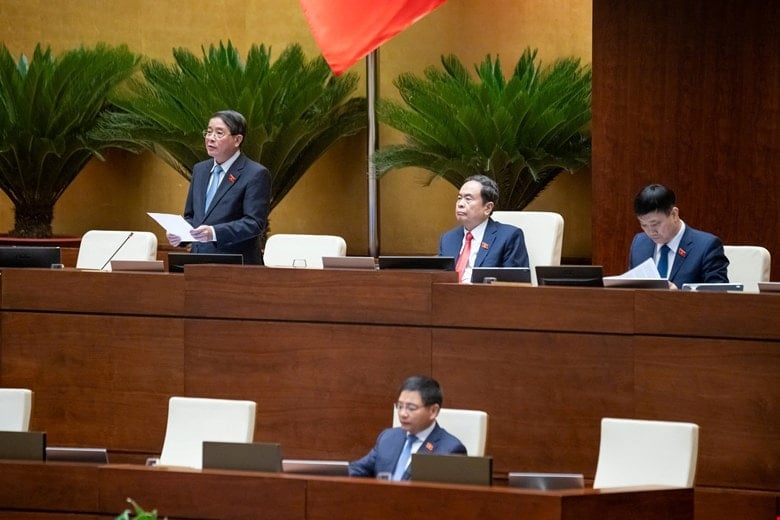
Concluding the above content, Vice Chairman of the National Assembly Nguyen Duc Hai said that the National Assembly deputies highly appreciated the preparation of the report, reception and explanation of the National Assembly Standing Committee, agreed with many contents of the draft Law but also contributed many opinions to complete the draft Law to ensure feasibility to meet practical requirements. Especially suitable for the current new situation, there is a reasonable time for businesses and people to adjust and transform production and business, while ensuring the synchronization and unity of the legal system.
Many delegates have opinions on taxable and non-taxable subjects; the determination of special consumption tax, regulations on implementation, enforcement and many other important contents. These are dedicated and responsible opinions that need to be carefully studied to be accepted or explained convincingly, in which attention should be paid to assessing the impact carefully to have a basis and scientific basis. The opinions of the National Assembly delegates have been fully recorded. The National Assembly Standing Committee will direct the drafting agency, the examining agency and relevant agencies to study and fully accept the participating opinions to complete the reports, explanations, acceptance, revision and completion of the draft Law to be submitted to the National Assembly for consideration and approval.
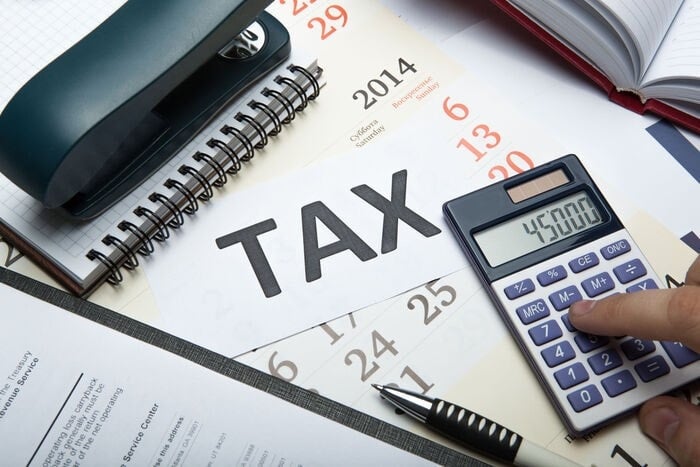 | VCCI proposes to consider the roadmap and level of special consumption tax increaseCommenting on the Law on Special Consumption Tax (amended), the Vietnam Federation of Commerce and Industry (VCCI) said that in the current challenging economic context, adjusting tax policies, including special consumption tax, needs to be considered carefully and comprehensively. |
Source: https://baodaknong.vn/quoc-hoi-thao-luan-ve-lo-trinh-ap-thue-tieu-thu-dac-biet-voi-nuoc-giai-khat-co-duong-252041.html






![[Photo] Prime Minister Pham Minh Chinh chairs conference on anti-smuggling, trade fraud, and counterfeit goods](https://vphoto.vietnam.vn/thumb/1200x675/vietnam/resource/IMAGE/2025/5/14/6cd67667e99e4248b7d4f587fd21e37c)



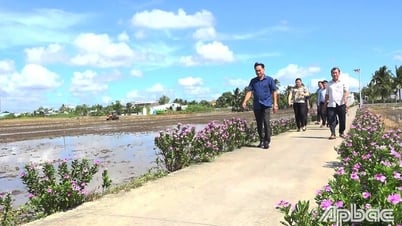













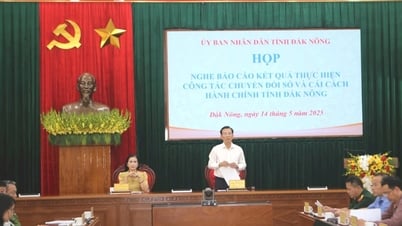




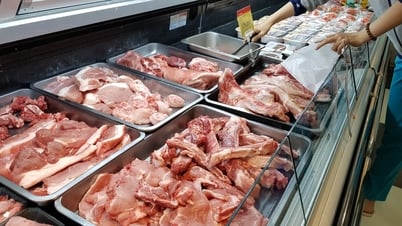















































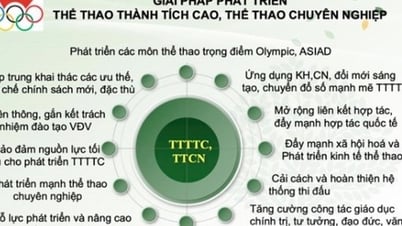















Comment (0)